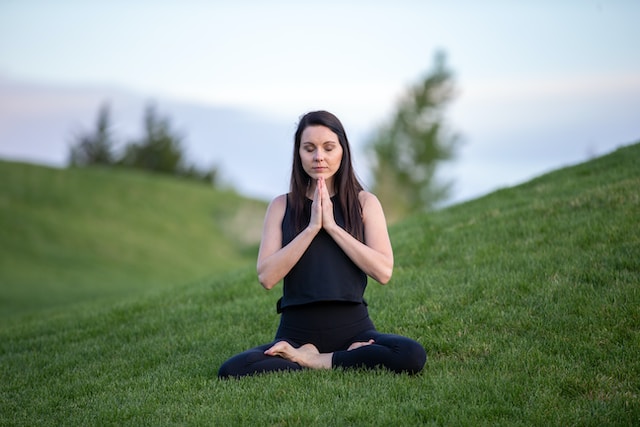
The art of meditation has been practiced for centuries, with various techniques and styles arising over time. Whether you’re a seasoned practitioner or an interested newbie, there is always something new to discover and explore in the world of meditation.
Meditation provides numerous benefits for both the mind and body. Regular practice has been shown to reduce stress and anxiety, improve cardiovascular health, boost immunity, and even promote healthy aging. Beyond the physical benefits, meditation has also been linked to enhanced cognitive function, improved emotional regulation, and increased feelings of compassion and kindness towards others.
By cultivating a sense of inner peace and tranquility, meditation can help us navigate life’s challenges with greater ease and grace, and tap into our fullest potential as human beings. Whether you’re looking to enhance your creativity, increase your focus and productivity, or simply connect more deeply with yourself and others, the art of meditation offers a wealth of benefits and possibilities. So why not try it out for yourself and see what gifts it holds in store?
Calming the mind
At its core, meditation is simply the act of calming the mind and focusing your attention on the present moment. This can be achieved through a variety of methods, from mantra-based meditation to mindfulness exercises and guided visualization.
In our fast-paced, modern world, we are constantly bombarded with stimuli from all directions – social media notifications, email overload, news updates, and the pressures of work and daily life. The mind becomes overwhelmed and overstimulated, which can lead to feelings of anxiety, stress, and burnout.

This is where the practice of meditation can be incredibly powerful. By taking the time to slow down and focus our attention, we give our minds a much-needed break from the constant barrage of input. This allows us to tap into a deeper sense of calm and clarity, and connect with our inner selves in a way that is often difficult to do amidst the turmoil of everyday life.
Not only does this promote greater well-being and happiness, it also enables us to make clearer, wiser decisions and to approach challenges and difficulties with greater equanimity and grace.
Meditation forms
One of the most common and effective forms of meditation is breath-based meditation. This involves sitting in a comfortable position, closing your eyes, and focusing solely on the sensation of your breath as it moves in and out of your body. It sounds deceptively simple, but it can be a powerful tool for reducing stress, improving focus and concentration, and cultivating a sense of inner calm and peace.
Another approach to meditation involves using visualization to access different states of consciousness. This might involve imagining yourself in a beautiful, peaceful natural setting, or visualizing a healing light moving through your body and mind. These types of guided meditations can be especially helpful for those who find it difficult to quiet their minds on their own.
Meditation for beginners
Meditation can be a challenging and sometimes frustrating endeavor, but it’s also highly rewarding and can yield life-changing benefits. To get started, it’s helpful to find a quiet, comfortable space where you won’t be disturbed, and set aside a few minutes each day to dedicate to your practice.
You might find it helpful to use guided meditations or record your own voice to lead yourself through the practice. Or, you might prefer to simply sit in silence and focus on your breath or a specific object, like a candle or a flower.
You might find it helpful to use guided meditations or record your own voice to lead yourself through the practice. Or, you might prefer to simply sit in silence and focus on your breath or a specific object, like a candle or a flower.

Don’t worry if your mind wanders or you feel restless – this is completely normal! Simply bring your attention back to your breath or your object of focus, and continue practicing each day. Over time, you’ll find that your mind becomes more calm and centered. And you’re better able to handle stress and challenges in your daily life. You might be surprised at just how life-changing this simple practice can be.
Ultimately, the key to effective meditation is consistency and commitment. While it’s easy to become discouraged when you don’t experience immediate results, it’s important to remember that meditation is a skill like any other, and takes time and practice to master. With patience, persistence, and a willingness to explore different techniques and approaches, anyone can tap into the limitless potential of their own consciousness through the art of meditation.
